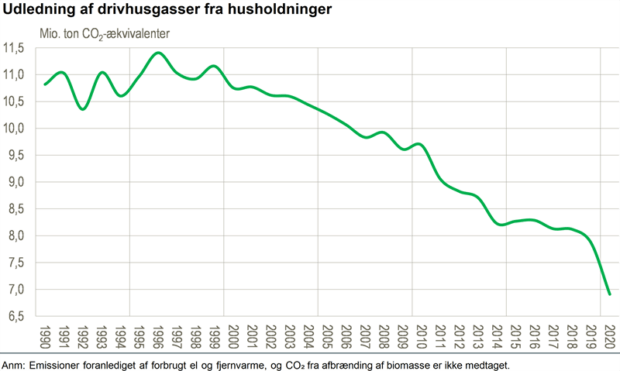According to new figures from Danmarks Statistik, household CO2 emissions have declined significantly during the COVID-19 Crisis.
The figures showed that household CO2 emissions dropped by 12 percent from 2019-2020 – the biggest annual decline since 1990.
Since 1990, household CO2 emissions – which is made up primarily of sources of heating, fuel and diesel – have decreased by 36 percent.
According to Danmark Statistik, the big decline last year was a direct consequence of the reduction in fuel consumption brought about by the increased share of population working from home during the pandemic.
READ ALSO: Parliament passes climate law to cut emissions by 70 percent by 2030
Considerable emission decline
The figures also revealed that total emissions of greenhouse gases in Denmark has dropped by 44 percent over the past 30 years to 42 million tonnes of CO2 equivalents in 2020.
The greatest decrease in emissions occurred in the supply sector, which has reduced emissions by 73 percent.
Meanwhile, greenhouse gas emissions from agriculture, forestry and fisheries declined by 21 percent to 13 million tonnes of CO2 equivalents in from 1990 to 2020.
Agriculture, particularly due to methane release from stock and nitrous oxide especially from nitrogenous fertilizers, accounts for about 95 percent of emissions from the group above.
















